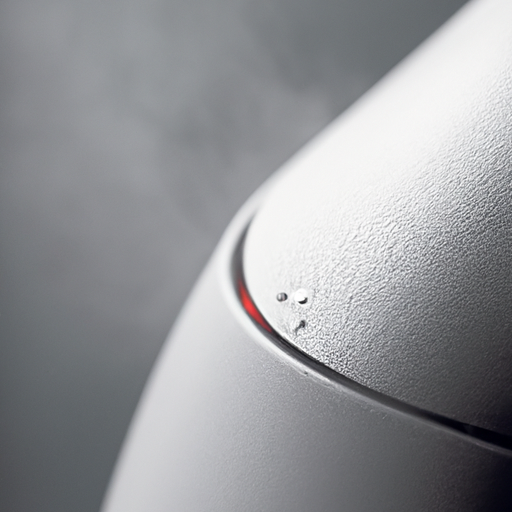
Have you ever wondered if commercial dehumidifiers can do more than just reduce humidity levels? Well, we’ve got some good news for you! In this article, we’re going to explore whether commercial dehumidifiers have the ability to not only dehumidify your space but also purify the air and remove those pesky allergens. So, if you’re curious about whether these powerful machines can do double-duty and provide you with cleaner, healthier air, then keep reading to find out!
Understanding Commercial Dehumidifiers
Commercial dehumidifiers are specially designed devices that help control the humidity levels in large commercial spaces such as warehouses, factories, and offices. They are more powerful than residential dehumidifiers and are capable of extracting significant amounts of moisture from the air. These machines play a crucial role in maintaining a comfortable and healthy environment, as excessive moisture can lead to mold growth, musty odors, damaged inventory, and even health issues for employees.
How Dehumidifiers Work
Dehumidifiers work by drawing in the surrounding air and passing it over a cold coil. As the air cools, its moisture condenses into water droplets, which are collected in a built-in reservoir or drained through a hose. The dehumidified air is then reheated and released back into the environment. This process effectively reduces the relative humidity present in the space, leading to a drier atmosphere.
Benefits of Using Commercial Dehumidifiers
There are several benefits to using commercial dehumidifiers in your workspace. Firstly, they help prevent the growth of mold and mildew, which thrive in moist environments. By reducing the humidity levels, dehumidifiers inhibit the conditions necessary for mold spores to multiply and cause potential health hazards. This is particularly important for employees who may suffer from respiratory conditions, as mold can exacerbate their symptoms.
Furthermore, commercial dehumidifiers help to protect valuable inventory and equipment. High humidity levels can corrode metal, damage electronic components, and promote the growth of fungi on various materials. By maintaining optimal humidity levels, dehumidifiers safeguard your investments and prolong their lifespan.
In addition to preserving inventory and equipment, dehumidifiers also contribute to creating a more comfortable and productive working environment. Excessive humidity can make a space feel stuffy and uncomfortable, leading to decreased productivity and employee dissatisfaction. Commercial dehumidifiers help reduce that clammy feeling in the air, promoting a more pleasant atmosphere for everyone.
Limitations of Commercial Dehumidifiers
While commercial dehumidifiers offer numerous benefits, it’s important to understand their limitations as well. One major limitation is that dehumidifiers are not designed to purify the air in terms of removing airborne particles such as dust, pollen, or pet dander. Their primary function is to control humidity levels and prevent moisture-related issues. Therefore, if you are specifically looking for an air purification solution, you may need to consider other devices or technologies.
Another limitation is the size and capacity of commercial dehumidifiers. Large-scale spaces require powerful and high-capacity dehumidifiers to effectively control humidity levels. However, these units can be costly to purchase and maintain. It is crucial to ensure that the dehumidifier you choose is suitable for the size and requirements of your commercial space.
What Are Allergens?
Allergens are substances that can trigger allergic reactions in susceptible individuals. Common allergens include pollen, dust mites, pet dander, mold spores, and certain foods. These substances can cause a range of symptoms such as sneezing, itching, watery eyes, congestion, and respiratory distress in people with allergies.
Can Dehumidifiers Remove Allergens?
While dehumidifiers cannot directly remove all types of allergens from the air, they can indirectly contribute to reducing allergen levels. By controlling the humidity, dehumidifiers help create an environment that is less favorable for the growth and proliferation of allergens such as mold and dust mites. These allergens thrive in humid conditions, so by keeping the humidity in check, dehumidifiers can help minimize their presence.
Effectiveness of Dehumidifiers in Allergen Removal
Dehumidifiers can be effective in reducing allergens indirectly but should not be solely relied upon for complete allergen removal. To complement the use of a dehumidifier, other measures should be taken to address specific allergen sources. For example, regular dusting, vacuuming with a HEPA filter, and implementing proper ventilation can all aid in reducing allergen levels.
Moreover, investing in an air purifier can be beneficial for removing airborne allergens like pollen, pet dander, and dust particles. Air purifiers work by using filters or other technologies to capture and trap these particles, improving overall air quality. By combining the use of dehumidifiers and air purifiers, you can effectively reduce allergens and create a healthier environment for allergy sufferers.
Additional Measures for Allergen Control
In addition to using dehumidifiers and air purifiers, there are several other measures you can take to control allergens in your commercial space. Maintaining regular cleaning schedules, especially in areas prone to allergen buildup, is crucial. This includes cleaning carpets, upholstery, and air vents to remove dust, pet dander, and other allergens.
Implementing proper ventilation systems can also help remove stale air and prevent the accumulation of allergens. Opening windows and using exhaust fans in bathrooms and kitchens can promote air circulation and reduce moisture levels, further discouraging the growth of mold and dust mites.
If possible, consider designating allergen-free zones within your commercial space. This can be particularly useful for employees with severe allergies who may require a safe and allergen-free environment to work in. By implementing these additional measures, in combination with using dehumidifiers and air purifiers, you can significantly improve allergen control in your workplace.
In conclusion, while commercial dehumidifiers primarily focus on controlling humidity levels and preventing moisture-related issues, they can indirectly contribute to reducing allergen levels by creating an environment less favorable for allergen growth. However, for complete allergen removal and purification of the air, additional measures such as using air purifiers and implementing proper cleaning and ventilation practices are necessary. By combining these efforts, you can create a healthier and more comfortable environment for everyone in your commercial space.